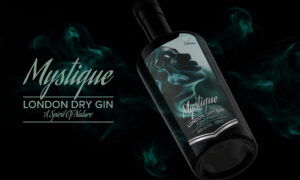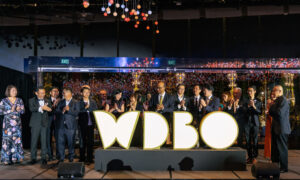Delta Electronics has achieved another breakthrough in the power-supply sector with its latest development – a high voltage generator for X-ray equipment which recently received medical device certification by the global testing and certification leader TUV Rheinland.
Achieving compliance with the European Union (EU) MDD 93/42/EEC medical devices directive and receiving EN ISO 13485 medical quality management system certification is an industry milestone that makes Delta the first power-supply manufacturer in Taiwan capable of manufacturing medical-grade high-voltage generators for X-ray equipment.
Medical-grade power generators must comply with more rigorous standards than those used for consumer power supplies. In addition to product safety, they are also assessed on performance, clinical requirements and usability. Taiwan’s electrical and electronics industry does not have a solid track record in manufacturing high-end medical devices.
High-voltage generators for X-ray equipment are required to provide consistent, high-voltage, high-current output and meet stringent radiation, stability and reliability criteria. To meet these demanding requirements, TUV Rheinland engaged a team of medical device experts from Taiwan, Japan and China to carry out the assessment and certification process based on the EU’s harmonised standards and regulations.
The complex R&D and certification process, which ended up rivalling that for X-ray equipment, took over six months. Delta built a lead-shielded laboratory accredited by the Atomic Energy Council expressly for this product.
Since so few vendors have ventured into the production of high-end medical devices, the recent certifications represent a major breakthrough for Delta. Most of Taiwan’s medical device industry is currently concentrated on the home care or small medical devices sectors.
“EN ISO 13485, which is based on the ISO 9001 quality management system standard, is considered the basic threshold for medical devices. However, MDD certification is essential for medical devices entering the EU market. It is equivalent to the FDA 510(K) standard in the US, and applies to medical devices of all risk levels. All medical devices, ranging from blood bags and home healthcare products to large pieces of equipment, such as MRI scanners, require MDD certification,” explained Brian Huang, Vice-General Manager for Medical Devices at TUV Rheinland Taiwan.
The MDD directive requires a manufacturer to be assessed by an EU-authorised notified body before the CE marking can be affixed. Only products that bear the CE marking, indicating compliance with essential health and safety requirements, can be offered for sale in the EU.
Delta chose TUV Rheinland to be its medical device certification partner because it is one of the few certification bodies authorised by the German government to issue MDD certificates. TUV Rheinland is also one of the few third-party certification bodies in Asia capable of creating a transnational team of medical device experts. For example, Japan is the Asian leader in high-end medical devices and more than half of the country’s medical device certification market is held by TUV Rheinland Japan, which has certified a diverse array of products ranging from dental equipment to supportive exoskeletons.
Speaking at the certification award ceremony, Holger Kunz, Executive Vice-President, Products for the TUV Rheinland Group, noted that the EU is the world’s second-largest medical device market.
“Delta’s decision to set its sights on the high-end market for its initial foray into the medical device sector represents more than simply adopting the highest standards and ambitious goals. It also makes Delta a role model for the rest of Taiwan’s medical device industry, and TUV Rheinland is delighted to be helping to raise standards and ensure excellence in this important area,” said Kunz, who previously worked in Taiwan and is now based in Japan.
TUV Rheinland is a global leader in independent inspection services, founded 145 years ago. The group employs 19,700 people around the globe. Annual revenue is more than EUR1.9 billion. The independent experts stand for quality and safety for people, technology and the environment in nearly all industrial sectors and areas of life. TUV Rheinland inspects technical equipment, products and services, and oversees projects, processes and information security for companies. Its experts train people in a wide range of careers and industries. To this end, the company operates a global network of approved labs and testing and education centres. Since 2006, TUV Rheinland has been a member of the United Nations Global Compact to promote sustainability and combat corruption.






